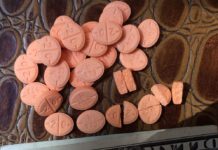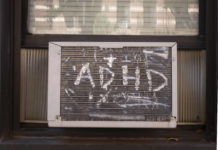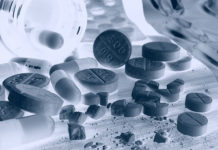The Effect of Psychiatric Diagnosis on Young People’s Sense of Self and Social Identity
A new review highlights the effects that psychiatric diagnosis has on children and adolescents’ social relationships and views of self.
Not Another Brick in The Wall
When searching for answers related to mental health, at times it can feel as if one is looking for a door in a brick wall. The task can become even more difficult when a family or individual embraces a diagnosis that seems to define one’s identity permanently.
The Federal Report on Financial Relationships Between Pharma Industry and Prescribing Physicians
The new Social Security Act, an Obamacare-inspired, Open Payments report came out September 30th. As part of the new healthcare reform policy, this federal report requires pharmaceutical and medical device companies to annually share documentation of direct payments they provided to entities such as medical practices and teaching hospitals. But before anyone gets excited and thinks there is finally a reliable and valid monitoring method to document that such payments are minimal as well as on the up and up, please note that 40% of the payment records (considered for inclusion in the 2013 Open Payments report) were not included in the $3.5 billion due to “unresolved questions” being cited.
The Inherent Unreliability of the ADHD Label
I imagine that everybody on this side of the issue knows by now that the eminent psychiatrist Jeffrey Lieberman, MD, Chief Psychiatrist at Columbia, and past President of the APA, called Robert Whitaker "a menace to society." The grounds for Dr. Lieberman's vituperation were that Robert had dared to challenge some of psychiatry's most sacred tenets! But in all the furor, it was largely ignored that in the same interview Dr. Lieberman had said something else that warrants additional discussion.
Omega-3 Screening for Psychiatric Symptoms?
There is a substantial body of evidence suggesting that not getting enough omega-3 fatty acids in your diet may be connected to a diverse array of psychiatric symptoms. In a new study published this month, psychiatrist Robert McNamara and Erik Messamore provide an overview of the evidence and call for screening of omega-3 deficiency in people experiencing symptoms associated with ADHD, depression, mood disorders, and psychosis.
German Psychologists Declare “the Drugs Don’t Work”
Jürgen Margraf and Silvia Schneider, both well-known psychologists at the University of Bochum in Germany, claim that psychotropic drugs are no solution to mental...
Multisystemic Therapy No More Effective than Standard Care for Antisocial Behavior
Study counters previous evidence supporting multisystemic therapy, finding adolescents are just as likely to have out-of-home placements when receiving multisystemic therapy versus management as usual.
Researchers Can’t Predict Whether Childhood ADHD Will Impact Adult Functioning
New research has found that a childhood ADHD diagnosis is not predictive of adult functioning in boys.
CDC Reports Increased Psychostimulant Prescriptions in Women of Reproductive Age
Psychostimulant prescriptions have increased by 344% (from 2003 to 2015) for women of reproductive age (15-44 years old).
How Young is Too Young? Part 1: Prescribing Psychiatric Drugs – Infancy to Toddlerhood
Do you remember feeling pressure as a child to do better at school, fit in socially, or behave more appropriately? Making the right decision was not always as easy as adults and cheerful children's books sometimes painted it. Today's expectations and demands placed on children for Disney-like perfection, however, are exponentially greater and strangely different. At an ever increasingly early age, we are expecting kids to behave years beyond their developmental ability and maturation.
Prenatal Valproate Exposure Linked with ADHD Diagnosis in Children
Children who were exposed to anti-seizure drug valproate in utero were 48% more likely to develop ADHD, according to a new study.
News Flash: 4.5 Million Children Forced Daily by “Caretakers” to Do Cocaine-like Drugs
Before we get to the meat and potatoes documenting how this headline is not only shocking but also accurate, you must know that a secondary goal of this blog is to test a few theories. I have been pondering these theories because it seems to be a mystery as to why (after more than two decades of whistleblowers warning the public) so many adults have not heard or heeded the news that ADHD stimulant drugs, which are not that different from cocaine, are extremely dangerous for kids.
ADHD: A Return to Psychology
Attention Deficit Hyperactivity Disorder (ADHD) has become the province of geneticists, neuropsychologists, and physicians. The prevailing view is that ADHD behaviors are caused by a neurobiological delay and that treatment must include medication and stringent management. While this general attitude may continue to prosper, there is increasing concern that we are proposing the existence of a medical problem when there are no biological markers or dysfunctions that reliably correspond with the behavioral criteria. It is vital that we more closely examine traditional beliefs about ADHD and review the shortcomings of commonly used treatments.
Take the ADHD “Test”: An Inside Look at ADHD’s Diagnosis
Just so we are clear, on page 61 of the Diagnostic and Statistical Manual of Mental Disorders (DSM-5), the "creators" of the diagnosis for ADHD admit there is no test sensitive or specific enough to actually diagnose ADHD. Given that the Drug Company-funded "experts" in charge of writing the ADHD diagnosis for the APA admit there is no test capable of diagnosing ADHD, nor are there any biological markers or brain scans capable of serving as a diagnostic, how can they diagnose 6.5 million kids with ADHD?
3 Facts All Parents Should Know About ADHD Stimulant Drugs
Medicating children for a host of mental disorders has become very popular in some parts of the USA. More than 8 million kids from 6 months to 17 years of age are on pharmaceutical drugs in this wonderful country. We lead the world in drugging youth for behavioral, cognitive and attention issues. We are once again #1. But I would like to share with parents as well as adults working with children a few not so readily available facts related to medicating kids for behavior issues.
Outdoor Education Tied to Psychological and Academic Benefits
How the satisfaction of basic psychological needs (BPN) in outdoor education environments can peak student interest and boost intrinsic motivation.
‘ADHD’ and Dangerous Driving
In former times, children who were routinely inattentive and impulsive were considered to be in need of training and discipline. By and large, school teachers and parents provided this. In fact, the training was usually provided before the matter even became an issue. Today these children are spuriously and arbitrarily labeled as ill, and are given pills. At the present time the pharma-psychiatric system is being widely exposed as the spurious, destructive, disempowering fraud that it is. Organized psychiatry is responding to these criticisms not by cleaning up its act, but instead by increasing its lobbying activity in the political arena.
What Does an 800 lb Gorilla in the Room Say at an ADHD Conference? ...
This blog is a little different than my normal. I want to tell you about an inspiring ADHD conference I took part in last week and a band of 800 lb. gorillas who gently shared the obvious with adults just wanting the facts when it comes to ADHD. First, if you didn't know, October was ADHD awareness month. Yes, according to www.ADHDawarenessmonth.org, a website sponsored by Shire Pharmaceuticals (the philanthropic makers of Adderall and Vyvanse) and supported by a large collection of non-profit groups (e.g., CHADD) conveniently supported by the profits of many other ADHD-focused pharmaceutical companies, October was the month to celebrate awareness of ADHD. October was the month to learn more about the ADHD stimulant drugs so often prescribed. Move along folks… nothing to see…no conflict of interest here.
Enough is Enough Series, #5 – The ADHD Fiction is Exposed. The French Have...
The time has come that the fictitious ADHD qualifies for my ‘Enough is Enough’ series. It’s time to stop addressing pharmaceutical psychiatry on its own terms: its fraudulent and corrupt 'science,' its spurious 'evidence base,' and its imaginary psychiatric ‘diseases.’ I’m done with this. The evidence is in. Let’s get real. Psychiatry has become a profession of drug pushers. As a psychiatrist I am beyond troubled. Let’s get real.
Digital Media Use Linked to Increase in ADHD Symptoms
Increased frequency of digital media use can increase symptoms of ADHD among adolescents, study finds.
New Study Challenges “Late-Onset ADHD”
Researchers found that 95% of adolescents and adults who screened positive for late-onset ADHD did not merit the actual diagnosis.
ADHD Diagnosis Based on “Illogical Rhetoric,” Analysis Claims
In a philosophically rigorous article, Spanish researcher Marino Pérez-Álvarez examines the logic of attention-deficit hyperactivity disorder (ADHD).
Pets Play Central Role in Management of Mental Health Problems
Individuals with long-term mental health conditions identify pets as valuable supports in their daily lives.
Rates of ADHD Diagnosis and Prescription of Stimulants Continue to Rise
Two new articles find that rates of ADHD diagnosis and stimulant prescription continue to rise all over the world.
Self-Compassion Course Supports College Students to Support Themselves
New research on a brief self-compassion focused course aimed at the college students.























